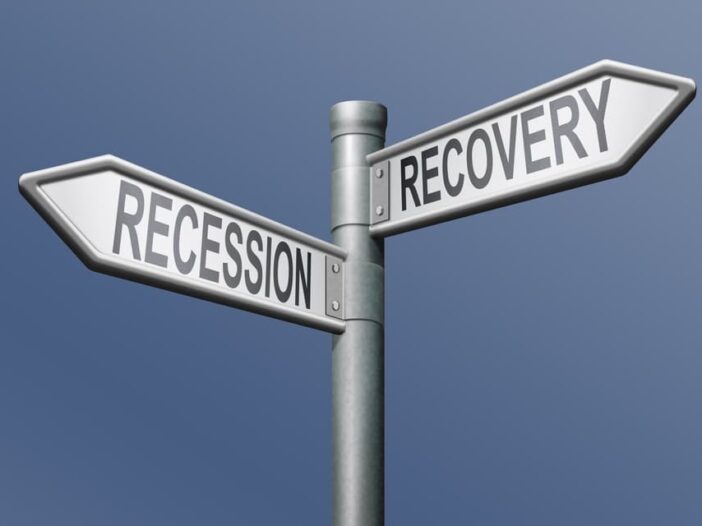Last week, we heard from the US’s two most hoary financial authorities:
‘I do not think the U.S. is currently in a recession and the reason is there are too many areas of the economy that are performing too well’, said Jerome Powell, jefe of the Fed.
‘This is not an economy that’s in recession’, added Janet Yellen, former Fed chief and now US Treasury Secretary.
The good news hung in the air like the perfume of a passing transvestite — fraudulent but not unpleasant.
But scarcely 18 hours later, over the wires came word the US economy really is in recession. Last quarter showed negative growth of 0.9%. Combine that with the first quarter and you have annualised growth of about MINUS 1.25% so far this year. Those are the Feds’ own numbers. They show a recession underway.
Curiously, the press was eager to reframe the ‘recession’ story in a way that made it less threatening to the Biden Administration. That is, reporters aimed to distract readers and help them to miss the point.
Quack, quack, quack!
This is a new form of journalism, better suited to the propaganda industry the US press has become. For example, we were told by both The New York Times and The Washington Post (they must have collaborated to get their story straight) that the latest figures risk ‘fuelling recession fears’. It’s like reporting that ‘the flames from the second storey windows caused firemen to worry that the building might be a fire hazard’.
Fearing a recession is a psychological phenomenon. Experiencing one is a whole different thing. And if fear were the real risk, the recession itself must be of no importance. It also echoes FDR’s famous line, that ‘all we have to fear is fear itself’, leaving readers to believe that it must be a little unpatriotic even to imagine such a thing.
You can see how easy and useful this new journalism can be. When the stock market is crashing, reporters could chortle: ‘Wall Street values greatly increased yesterday’.
Likewise, the technique might be useful for Baltimore’s overworked crime reporters: ‘A mass shooting today on the corner of North and Charles has left citizens worrying about whether they have adequate life insurance’.
But as they say in the legal trade, if it looks like a duck, waddles like a duck, and quacks like a duck…well, it’s a duck. And it looks like a recession to us.
Stocks have fallen.
Bonds have fallen.
Real estate is beginning to fall.
And now, the economy is actually shrinking.
Quack, quack, quack…
No more pussyfooting
The message has gone out, despite the media’s attempt to kill the story. But it’s summer and a lot of people aren’t checking their email. So far, there are no shrieks of panic. Investors were buying stocks last week, betting that we’ve seen the worst of the stock market sell-off. The Fed is still lending far below the level of consumer price inflation. Congress is still spending money it doesn’t have on projects that make no sense. And the federal deficit is still more than US$1 trillion.
But major turns take time. Sometimes years.
In 1980, Paul Volcker made it very clear what he was going to do. And then he did it. No pussyfooting around; he raised the Fed Funds rate nearly 700 basis points (7%) above consumer price inflation. (For reference, that would be a Federal Funds rate of 12% today, rather than the 2.5% we have.)
But investors didn’t know what to make of it…and frequently guessed wrong.
The ‘primary trend’ was up for both stocks and bonds. But investors weren’t convinced. From May of ‘83 to July of ‘84, bond prices went down. It was four years after the primary trend had begun before it was clear. Then, it just kept on truckin’ (with periodic backing up) until July 2020 — 39 years after it began.
The primary trend
Likewise, in the summer of 1982, the Dow took off on what was to be its biggest joy ride ever. It should have been obvious, as early as January of 1980, that stocks were going up. If Volcker tamed inflation, as he promised, interest rates would come down. Stocks would be more valuable. But in January 1980 the Dow was only at 878. And instead of shooting up, the Dow wandered aimlessly. Two and a half years later, it had actually lost value, and was down to 808. And yet, there too…the cards had been dealt. And it was a winning hand for stock market investors. After 1982, stocks continued to go up, with occasional breaks, for the next 39 years. The Dow didn’t finally top out until December 2021. Then, it was more than 36,000, for a gain of 44-times investors’ money.
That is the power of the ‘primary trend’. Alas, like a bad marriage, it’s only clearly visible in retrospect. At the time, it’s noisy, chaotic — full of passion and confusion.
Which takes us back to our question…how can we be so categoric; how come it’s ‘inflate or die’? Why not something in between? Can’t you just have a little bit of inflation to help the medicine of a correction go down? Can’t the most egregious investments pass away, but otherwise leave the economy intact?
Or to put it another way, are investors who ‘buy the dip’ necessarily making a mistake?
More to come…
Regards,
 |
Bill Bonner,
For The Daily Reckoning Australia

